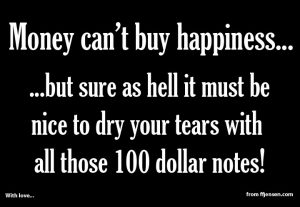It’s been a while, guys. That wasn’t the way it was meant to be, but there are a series of unremarkable things that happen in life that can push an author in unintended directions. Case in point: what happens (or doesn’t happen) at work. A vast majority of us indiefolk have to do other kinds of work for a living. Many of us belong to the so-called precariat: we hold casual positions at work which don’t allow us to think in terms of earning so much a month, because there are months in which we don’t earn anything.
Gone are the days in which an academic like me had the chance of being employed full-time. Managing money has become “a thing” in itself and it saps my creative energy. I happened to be discussing this with a dear friend of mine this arvo when she nodded and said something like ‘Yeah, having money and a room of one’s own.’ It was Virginia Woolf who wrote those words in an essay that would become a classic in feminist thinking:
…a woman must have money and a room of her own if she is to write fiction; and that, as you will see, leaves the great problem of the true nature of woman and the true nature of fiction unsolved…
I can’t complain about the little room where I do my writing (when my mental state allows me to). Even the local library where I live counts as a “room of my own” with a breathtaking view of the Blue Mountains. We can discuss “the true nature of woman” till the cows come home. In any case, this isn’t what I intend to do here. I guess that what I want to discuss is the role of money in the life of a writer. Yes, that unspeakable monstrosity, that hideous vulgarity. Money, or lack thereof, that can hold back many a creative soul and their creative career.
Every time I want to find an answer to life’s dilemmas, I ask Google. Yeah, effin’ Google and its nerdy relative Google Scholar, my true ally in these days of post-truths. A couple of days ago I came across a very cool website run by Mark McGuinness, poet and coach. In this well worded article he discusses the uneasy relationship that creative people have with money, and he does nail it on most counts. Many authors think that money isn’t important; they don’t know how to get it or don’t know how much they’re worth; they don’t want to sell out or look greedy; not to mention that in countless cases they don’t know how to manage it or spend it.

If I use the third person singular “they” it’s because I’ve got a very clear idea of the role of money in my life. I’m also painfully aware that the need to have a “day job” will be there for who knows how long because very few creative writers make a living as such. I’m not saying I’ve given up; on the contrary, I believe there could be a future working as a creative writer for me. But in the meantime I have to support myself in a different way, namely through a “day job”. A stable “day job”.
‘These are hard times for dreamers,’ said the porno shop assistant in the movie Amélie. I’d say they’re hard times for those of us that want to make a living without making a fuss. Of course I want to make a living selling novels and collections of short stories, but in order to write them I need the peace of mind that comes from knowing that my bills are paid.
Must leave you now. I need to continue fighting the bad guys and keeping the wolf from the door. Catcha later 🙂
